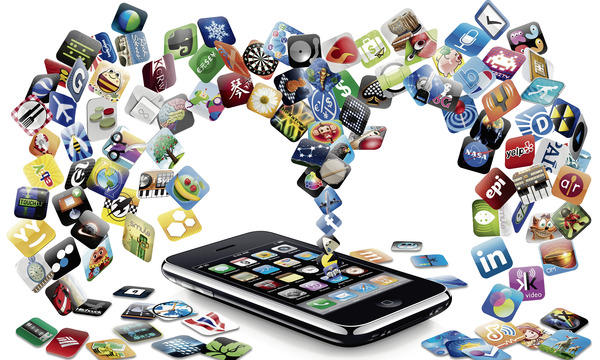In yesterday’s Sunday Business section of the New York Times, tech reporter Jenna Wortham essentially declared the war for smartphone dominance over — with Apple as the champion thanks to the out-sized success of the App Store strategy. Interviewing developers, competitors, Apple execs, and analysts, Wortham looks everywhere for cracks in the iFacade, but ultimately comes up empty. If someone is going to unseat the iPhone as the most profitable and desirable mobile platform, they haven’t emerged yet, all apologies to Android, Palm, Microsoft and RIM intended.
What struck me as I read the article was just how much of a shock to the entire mobile industry the iPhone has been. I see that less in the outsized numbers the magical handheld has posted than I do in the day-late, dollar-short responses of pretty much everyone else (Google possible excepted). Palm still claims that its use of widely embraced web-coding techniques in WebOS app development will help it counter the iPhone, but the 500 apps in its woeful App Catalog counter this notion. RIM and Microsoft note, correctly, that the correlation between quantity and quality isn’t always clear (what else can you say when you’re out-numbered by more than 30-to-1), but offer only vague promises of innovation:
RIM Co-CEO Jim Balsillie: “We’re much more interested in changing the applications and changing the user experience and really unlocking the promise and the money and revenue opportunity for the ecosystem.”
“Our strategy is to look holistically at how we can provide the best all-around user experience,” says Victoria Grady, director of mobile strategy at Microsoft. The Marketplace now has more than 800 apps.
These folks are looking, but they aren’t finding. Only Android Marketplace, which has accumulated 14,000 apps by skipping an Apple-like review process is even in the same zip code as the App Store’s 100,000+ titles. Those gains, however, are threatened by the so-far successful strategy of encouraging myriad interfaces and custom blends of Android across its many phones.
So is Apple invincible? Of course not. The company could always become complacent. Operating system development could crawl to a halt. The sheer size of the App Store could make it impossible to find anything you’re actually interested in. Fed-up developers might take their apps to other platforms (as I would encourage the team that has operated for more than 396 days without response from Apple to do…). Apple could stop innovating.
But I have to say, that’s really unlikely. In fact, the only thing holding the iPhone back at this point is AT&T’s network. And despite its abhorrent reputation, only a handful of tech pundits have found it onerous enough to make high-profile defections to Verizon. In another two or three years, an iPhone running on the LTE network will be out, and this awkward period of exclusivity will pass.
Apple has won on three key points: It created an extensible user experience platform that leant itself to a wide variety of uses and users. It created a new business model for the mobile industry that its competitors would struggle to replicate. And it created a brilliant ad campaign that calmly re-educated the public on how a phone should work to further extend its competitive advantage.
Titans fall. But Apple’s not going to for a long while. The iPhone and its descendants will rule for at least the next five years — at which point Apple will probably cannibalize it with something a few dozen times better.


